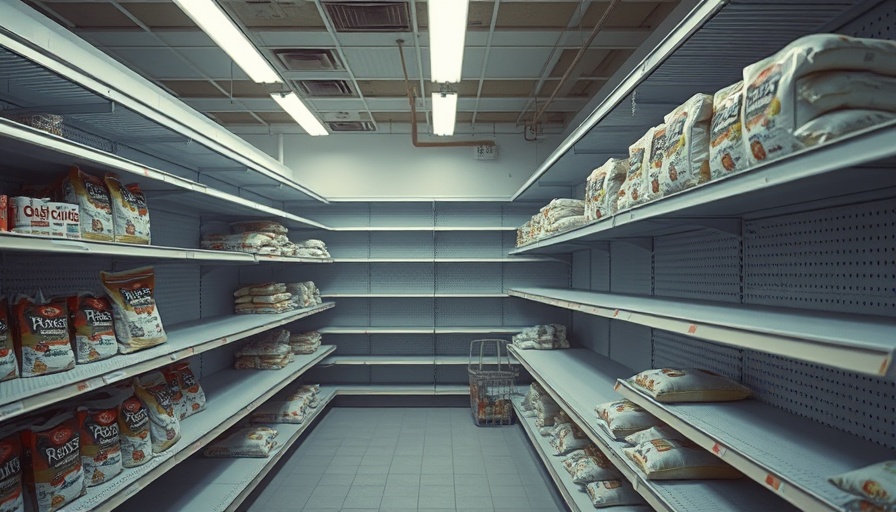
Preparing for Food Insecurity: An Increasing Necessity
The specter of food shortages looms larger than ever as our world grapples with a multitude of pressures on food systems. From climate change exacerbating weather patterns to geopolitical conflicts impacting supply chains, the need for proactive strategies to ensure food security is paramount. First and foremost, understanding the complexity of potential food shortages is crucial. These shortages can manifest for various reasons, including crop failures, market fluctuations, and international conflicts affecting trade routes.
Understanding the Risks: What Could Cause Shortages?
Food shortages arise when the demand for a particular food product surpasses its supply due to factors ranging from natural disasters to economic instability. Events like droughts, floods, or even pest outbreaks can significantly impact agriculture. Additionally, geopolitical tensions, such as those seen in the Ukraine conflict, disrupt not only local food supplies but also global market prices, affecting consumers everywhere.
The consequences of such shortages are dire. They can lead to inflated food prices and subsequent malnutrition, leaving the most vulnerable communities at the greatest risk. By identifying these risks early, you can tailor your preparedness plan accordingly.
Tips for Effective Food Storage
Upon identifying your area's potential food shortage risks, the next step is to strategize how you can store food effectively. Experts recommend aiming for a three-month supply of non-perishable items. A well-planned food storage system is not just about stocking up, but understanding what to store. Canned goods, dried beans, grains, and shelf-stable milk should hold a primary spot in your inventory.
Stock Up on Non-Perishable Essentials
The fun part of preparing for food shortages is selecting your stock. When choosing non-perishable food items, consider those which provide essential nutrients while having a long shelf life. This includes:
- Canned fruits and vegetables
- Dried legumes and grains
- Nuts and seeds
- Nut butter
- Shelf-stable dairy or dairy alternatives
These items are not only reliable but also versatile, allowing you to create various meals even under constraints.
Water: An Often Overlooked Resource
In your approach to food storage, don't forget about water. A reliable source of clean water cannot be underestimated during a crisis. It’s advisable to store at least a gallon of water per person per day for a minimum of three days. Opt for bottled water for short-term needs, but consider water filtration methods and large containers for more extended periods.
Grow Your Own Food: The Ultimate Preparation
One of the long-term strategies to mitigate food shortages is establishing your own food garden. Even urban homeowners can create their own green spaces, using vertical gardening techniques and container gardening to optimize limited areas. This not only provides a fresh supply of fruits and vegetables but also boosts mental well-being and connects you with sustainable practices.
Community Connections: Sharing Knowledge and Resources
Building a community focused on preparation and sustainability is invaluable. Share your knowledge of food storage with neighbors, encourage community gardening projects, or participate in local food co-ops. Such connections can yield useful resources and information, ultimately fostering resilience against food shortages.
Future Predictions: Preparing Today for Tomorrow's Challenges
As we progress into a future marked by unpredictable climate patterns and potential economic instability, these preparations will prove vital. Food security is multifaceted and necessitates a proactive stance. By identifying risks, stocking wisely, and engaging with your community, you take significant steps toward self-sufficiency and preparedness.
Above all, being informed and prepared empowers you and your loved ones in uncertain times. Don’t wait until panic sets in; begin your preparations today. Taking these steps ensures peace of mind, knowing you have done your best to protect your family from potential food shortages.
Act Now: Your Food Security Starts Here!
In an era where food security is increasingly at risk, the time to act is now. Start planning your food storage strategies and consider initiating a garden project in your backyard or community space. Empower yourself and those around you, and take your first steps toward ensuring food security.
 Add Row
Add Row  Add
Add 




 Add Row
Add Row  Add
Add 

Write A Comment